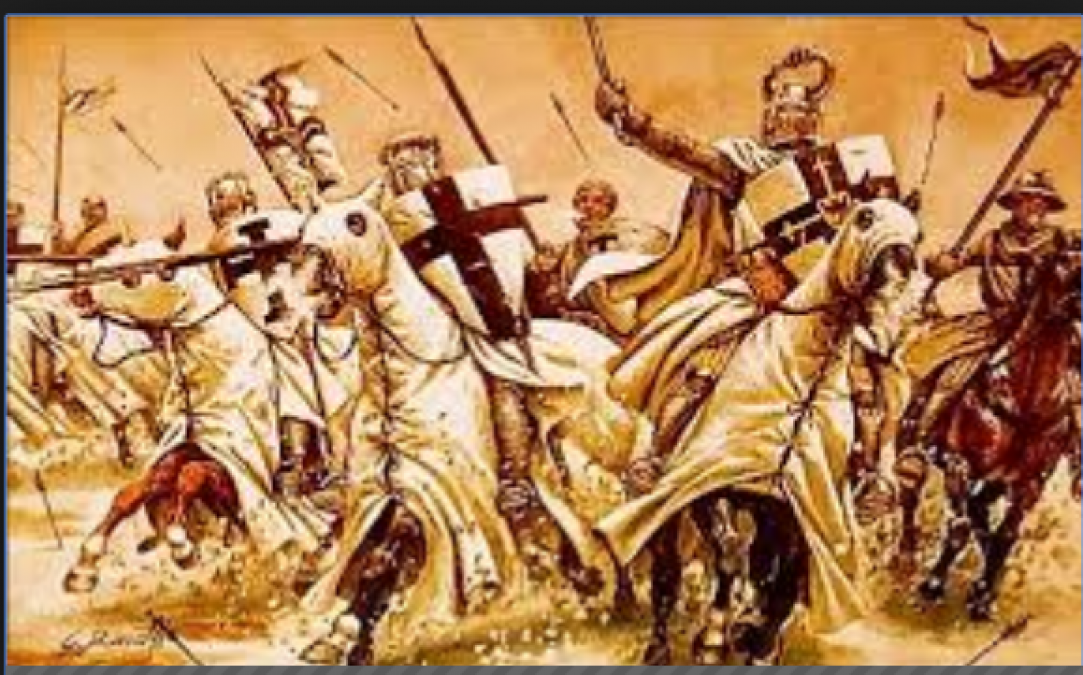
One of the most famous examples of religious violence in the Middle Ages is of course the Crusades - attempts by European Christians to impose their vision of religion upon Jews, Orthodox Christians, heretics, Muslims, and just about anyone else who happened to get in the way. Traditionally the term "Crusades" are limited to describing massive military expeditions by Christians to the Middle East, but it is more accurate to acknowledge that there also existed "crusades" internal to Europe and directed at local minority groups.
Amazingly, the Crusades have often been remembered in a romantic fashion, but perhaps nothing has deserved it less. Hardly a noble quest in foreign lands, the Crusades represented the worst in religion generally and in Christianity specifically. The broad historical outlines of the Crusades are available in most history books, so I will instead present some examples of how greed, gullibility and violence played such important roles.
also read The goddess Durga and significance in Hindu methodology
Religion and the Crusading Spirit Not all crusades were led by kings greedy for conquest, although they certainly didn't hesitate when they had a chance. An important fact often overlooked is that the crusading spirit which gripped Europe throughout the High Middle Ages had particularly religious roots. Two systems which emerged in the church deserve special mention has having contributed greatly: penance and indulgences. Penance was a type of worldly punishment, and a common form was a pilgrimage to the Holy Lands. Pilgrims resented the fact that sites holy to Christianity were not controlled by Christians, and they were easily whipped into a state of agitation and hatred towards Muslims. Later on, crusading itself was regarded as a holy pilgrimage - thus, people paid penance for their sins by going off and slaughtering adherents of another religion. Indulgences, or waivers of temporal punishment, were granted by the church to anyone who contributed monetarily to the bloody campaigns.
Early on, crusades were more likely to be unorganized mass movements of "the people" than organized movements of traditional armies. More than that, the leaders seemed be chosen based on just how incredible their claims were. Tens of thousands of peasants followed Peter the Hermit who displayed a letter he claimed was written by and delivered to him personally by Jesus. This letter was supposed to be his credentials as a Christian leader, and perhaps he was indeed qualified - in more ways than one.
Not to be outdone, throngs of crusaders in the Rhine valley followed a goose believed to be enchanted by God to be their guide. I'm not sure that they got very far, although they did manage to join other armies following Emich of Leisingen who asserted that a cross miraculously appeared on his chest, certifying him for leadership. Showing a level of rationality consistent with their choice of leaders, Emich's followers decided that before they traveled across Europe to kill God's enemies, it would be a good idea to eliminate the infidels in their midst. Thus suitably motivated, they proceeded to massacre the Jews in German cities like Mainz and Worms. Thousands of defenseless men, women and children were chopped, burned or otherwise slaughtered.
This sort of action was not an isolated event - indeed, it was repeated throughout Europe by all sorts of crusading hordes. The lucky Jews were given a last-minute chance to convert to Christianity in accord with Augustine's doctrines. Even other Christians were not safe from the Christian crusaders. As they roamed the countryside, they spared no effort in pillaging towns and farms for food. When Peter the Hermit's army entered Yugoslavia, 4,000 Christian residents of the city of Zemun were massacred before the army moved on to burn Belgrade.
Professionalized Slaughter
Eventually the mass killings by amateur crusaders were taken over by professional soldiers - not so that fewer innocents would be killed, but so that they would be killed in a more orderly fashion. This time, ordained bishops followed along to bless the atrocities and make sure that they had official church approval. Leaders like Peter the Hermit and the Rhine Goose were rejected by the church not for their actions, but for their reluctance to follow official church procedures. Taking the heads of slain enemies and impaling them upon pikes appears to have been a favorite pastime among crusaders, for example, chronicles record a story of a crusader-bishop who referred to the impaled heads of slain Muslims as a joyful spectacle for the people of God. When Muslim cities were captured by Christian crusaders, it was standard operating procedure for all inhabitants - no matter what their age - to be summarily killed. It is not an exaggeration to say that the streets ran red with blood as Christians reveled in church-sanctioned horrors. Jews who took refuge in their synagogues would be burned alive, not unlike the treatment they received in Europe.
also read The lord Brahma: Fundamental forces symbolized of universe creator